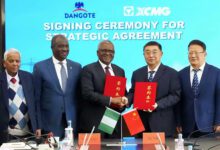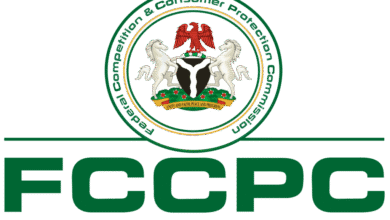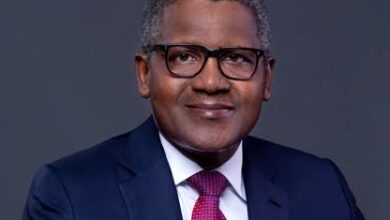Nigeria: CBN Reduces Monetary Policy Rate By 100 Basis Points

The Monetary Policy Committee (MPC) of the Central Bank of Nigeria (CBN) has voted to reduce the Monetary Policy Rate (MPR) by 100 basis points, from 12.5 per cent to 11.5 per cent.
Briefing newsmen shortly after its meeting,Tuesday, CBN’s Governor, Mr Godwin Emefiele said, “the MPC voted to: Reduce the MPR by 100 basis points from 12.5 to 11.5 per cent; Adjust the asymmetric corridor from +200/-500 basis points to +100/-700 basis points around the MPR; Retain the CRR at 27.5 per cent; and
Retain the Liquidity Ratio at 30 per cent”.
Emefiele who is the Committee Chairman said, “six (6) members voted to reduce the MPR by 100 basis points, one (1) member by 50.0 basis points and three (3) voted to hold. Nine (9) members voted to change the asymmetric corridor while one member voted to hold. All members voted to hold the Cash Reserve Ratio (CRR) and Liquidity Ratio (LR)”.
Rolling out the committee’s decision, he said, in the face of declining economic growth and rising inflation, the Committee faced a difficult set of policy choices, requiring trade-offs and sequencing.
He said, following the above considerations, the Committee reviewed the choices before it, bearing in mind its primary mandate of price stability and the need to support the recovery of output growth.
Consequently, he said, “the Committee noted that the likely action aimed to addressing the rise in domestic prices would have been to tighten the stance of policy, as this will not only moderate the upward pressure on prices but will also attract fresh capital into the economy and improve the level of the external reserves.
“It however, noted that this decision may stifle the recovery of output growth and thus, drive the economy further into contraction.
“On easing the stance of policy, the MPC was of the view that this action would provide cheaper credit to improve aggregate demand, stimulate production, reduce unemployment and support the recovery of output growth.
“The Committee, however, observed that with inflation trending upwards, easing of the policy stance may exacerbate the current inflationary pressure through an increase in money supply.
“In addition, the MPC noted the tendency of an asymmetric response to downward price adjustments by ‘Other Depository Corporations’, thus undermining the overall beneficial impact of a reduction to the cost of capital.
“In the Committee’s view, a hold position will allow the economy to adjust to the ongoing stimulus measures put in place by the monetary and fiscal authorities to curb the downturn and allow more time for the MPC to assess their impact on the economy.
“After the consideration of the three policy options, Members were of the opinion that the option to loose will complement the Bank’s commitment to sustain the trajectory of the economic recovery and reduce the negative impact of COVID-19.
“In addition, the liquidity injections are expected to stimulate credit expansion to the critically impacted sectors of the economy and offer impetus for output growth and economic recovery.
“In view of the foregoing, the Committee decided to reduce the MPR by 100 basis points to 11.5 per cent and adjust the asymmetric corridor to +100/-700 around the MPR,” he said.
The apex bank Governor said, the MPC was, at the meeting confronted by policy dilemma. “Whereas MPC believes in the primacy of its price and monetary stability mandate, it nevertheless was confronted with what policy direction to focus on, given the contraction in output growth during the second quarter of 2020, which may lead to a recession, if the third quarter of 2020 output growth numbers further show a contraction.
“It is, therefore, of the view that, if a recession occurs in Q3, the Committee would be confronted with proposing policy options in a period of stagflation. This is because, with the recent removal of subsidy on fuel price, the increase in energy prices, and the adjustment of the exchange rate, inflationary pressure will no doubt persist unless MPC consider options that will deal with the pressure aggressively.
“The Committee was therefore of the view that, to abate the pressure, it had no choice but to pursue an expansionary monetary policy using development finance policy tools, targeted at raising output and aggregate supply to moderate the rate of inflation.
“At present, fiscal policy is constrained and so cannot, on its own lift the economy out of contraction or recession given the paucity of funds arising from weak revenue base, current low crude oil prices, lack of fiscal buffers and high burden of debt services.
“Therefore, monetary policy must continue to provide massive support through its development finance activities to achieve growth in the Nigerian economy.
“This is the reason MPC will continue to play a dominant role in the achievement of the goals of the Economic Sustainability Program (ESP) through its interventionist role to navigate the country towards a direction that will boost output growth and moderate the level of inflation.
“Similarly, given that the currency adjustment was a causal factor in determining the price of petroleum products and energy prices, the MPC believes that the CBN management must take bold actions to stabilize the exchange rate.
“Management was further enjoined by the MPC to continue to provide funding to sectors that will resolve the supply constraints in petrol pricing, energy pricing and food availability.
“To support household consumption, the MPC enjoined management to aggressively channel its funding to targeted households, SMEs and consumer credit by further increasing its lending activities through its NIRSAL Microfinance Bank (NMFB).
“The Management was also directed to ensure that DMBs respond to the reduction in deposit rates by aggressively lowering cost of credit to borrowers.
“As regards output growth, MPC noted that air and road transportation; entertainment & accommodation; food services; and education subsectors were adversely affected by the lockdown. It therefore suggested that more efforts be put in place to continue to provide relief and funding to these subsectors to catalyse growth and improve the output numbers.
“In the view of the MPC, so far, evidence has not supported the rising inflation to monetary factors but rather, evidence suggests non-monetary factors (structural factors) as the overwhelming reasons accounting for the inflationary pressure.
“Accordingly, the implication is that traditional monetary policy instruments are not helpful in addressing the type of inflationary pressure we are currently confronted with. What is useful is the kind of supply side measures currently being implemented.
“MPC also expects that a downward adjustment in MPR may be necessary to further put pressure on our deposit money banks to lower cost of credit in aid of growth,” he said.






